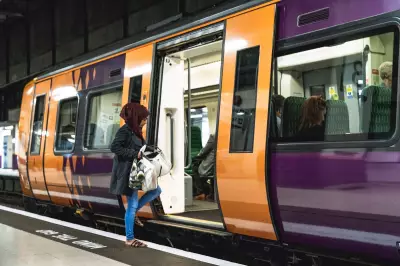
In a bold move that could reshape Britain's transport landscape, Chancellor Rachel Reeves has declared war on planning bottlenecks that have long hampered infrastructure projects across the nation. The newly appointed Labour Chancellor is poised to unleash a six-point plan that promises to accelerate projects while putting money back into drivers' pockets.
The Planning Revolution
At the heart of Reeves' strategy lies a radical overhaul of the planning system that has constrained development for decades. "The planning system is not working," Reeves declared, signalling her intention to sweep away bureaucratic hurdles that have delayed critical infrastructure projects.
Six Key Transport Shake-ups
The Chancellor's comprehensive approach targets multiple aspects of Britain's transport network:
- Accelerated Infrastructure Delivery: Major road and rail projects will benefit from streamlined approval processes, potentially bringing forward completion dates for long-awaited improvements.
- Electric Vehicle Revolution: A renewed push for EV infrastructure aims to address range anxiety and make electric vehicles a practical choice for more Britons.
- Fuel Price Stability Measures: While not explicitly detailing mechanisms, the Chancellor hinted at interventions to prevent the wild price swings that have plagued motorists in recent years.
- Public Transport Enhancement: Integrated transport systems receiving fresh attention could mean more seamless connections between different modes of travel.
- Strategic Road Network Upgrades: Key motorways and A-roads are slated for improvements to reduce congestion and journey times.
- Sustainable Transport Funding: Walking and cycling infrastructure will see increased investment as part of a holistic approach to mobility.
What This Means for British Motorists
For the average driver, these reforms could translate to tangible benefits. Reduced planning delays mean quicker improvements to problematic routes and potentially lower project costs. The focus on EV infrastructure addresses one of the biggest barriers to electric vehicle adoption, while measures to stabilise fuel costs could provide welcome relief from volatile pricing.
The Chancellor's announcement represents the most significant shift in transport policy in recent years, aligning economic growth with environmental sustainability. As these measures unfold, British motorists and commuters may find their journeys becoming cheaper, faster, and greener.





